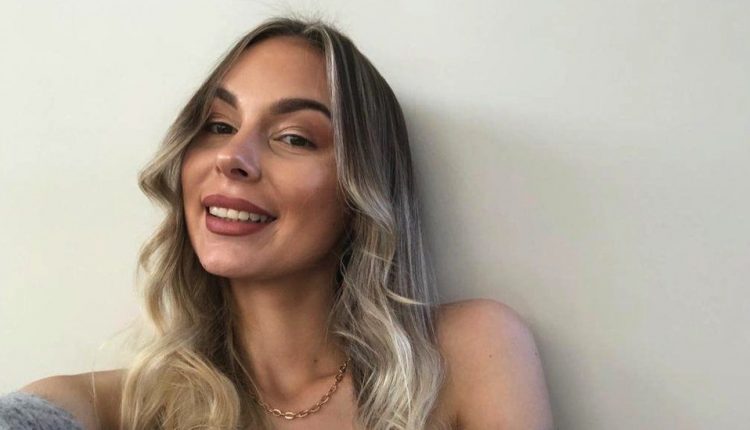Adele Roberts: Bowel cancer patients discuss diagnosis and treatment
The news that BBC Radio 1’s Adele Roberts has been diagnosed with bowel cancer has sparked an outpouring of support from listeners and fellow presenters.
Other people who’ve also had bowel cancer are sending their support too.
Student Estera Bom was diagnosed last year, while Dr Philippa Kaye got her diagnosis in 2019.
“That’s our urge when people we love are struggling, we try and fix it and make it better. But actually what we actually want is just to be listened to.”
‘Don’t ignore it’
Estera had never been in hospital before last year. She was studying interior design at De Montford university and says she she’d always been very healthy.
Then, aged 21, she was told she has bowel cancer.
When she was diagnosed in May 2020, she was told the disease was at stage two or three, but she says it only took a few months for the disease to develop into stage four – meaning it’s more serious.
The cancer has also spread to her lungs.
Estera’s treatment started with chemotherapy and she’s now looking into radiotherapy treatment. She hopes to have surgery in the next few months.
This video can not be played
To play this video you need to enable JavaScript in your browser.
“It’s very important to get things checked as soon as you feel like something’s wrong,” she says.
“You know when something’s not right, and you shouldn’t ignore that.”
“My advice is: ‘Don’t lose hope. Your body is able to do amazing things.’
“The amazing medical side we have available to us with the NHS is such a big part of getting through cancer.
“But also your mind set is such a big part that gets you through it.”

Image source, Liz Isles
As a GP, Dr Philippa Kaye is used to caring for those suffering with illness and disease.
That was until 2019, when she was diagnosed with stage two bowel cancer at the age of 39.
Having a colonoscopy – a scan to check the inside of your bowels are healthy – she looked at the screen and “saw the cancer myself.”
She adds: “I looked at the surgeon and his eyes came up to meet mine, and in that very moment I knew.”
In a moment which she’ll never forget, Dr Philippa says: “My entire world changed.”
While the UK went into lockdown, she had surgery and chemotherapy. Luckily, she’s now cancer-free.
How do you spot the symptoms?
The most important thing to look out for is a change in bowel habit, says Dr Philippa.
“Everyone has a bowel habit. You might go to the toilet every two days. Someone else might go four times a day.
“But if your bowel habit changes for more than three weeks, then that’s something to see the doctor about.”
She also suggests visiting a doctor if you have any abdominal pain for more than three weeks, if you can feel a lump, or you have blood in your poo.
“It doesn’t matter if it’s bright red on the toilet paper, or mixed in with the poo.”
Other signs to look out for are losing weight unintentionally or your feeling tired all the time.
“Having one of those symptoms doesn’t mean you have cancer. It means you have a symptom that needs to be checked out.
“The earlier it is you get diagnosed the more likely it is that your cancer will be treatable.”
What if a friend or family member is going through cancer?
Dr Kaye says “don’t always try and fix it.
“That’s our urge when people we love are struggling, we try and fix it and make it better. But actually what we actually want is just to be listened to.”
If you, or someone you know, have been affected by cancer, information and support is available on the BBC’s Action Line page.

Comments are closed.